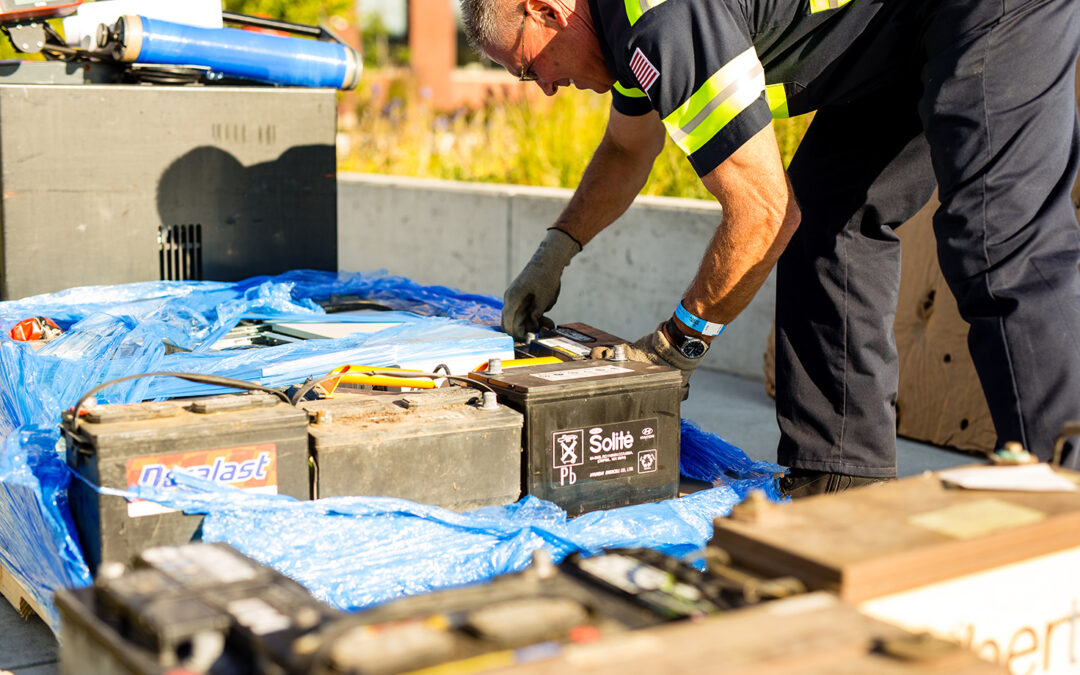3/9/2021, Scottsdale, AZ
The Sustainability Consortium (TSC) released today the Lead-Acid Battery Recycling Success: Policy + Reverse Supply Chains report in collaboration with the Responsible Battery Coalition. TSC and the Responsible Battery Coalition partnered on collaborative research to understand how lead acid batteries have achieved 99% recycling in different parts of the globe.
The report shows learnings from three regions that have created different regulatory policies and reverse supply chains that have enabled responsible recycling of lead-acid batteries: Brazil, the United States, and the European Union. These systems differ by the type of reverse supply chain they use, who collects used batteries, how centralized and standardized the program is across different regions, and whether a deposit is required on new batteries. Despite these differences, all three have achieved very high recycling rates through a combination of:
- Regulatory efforts to ensure safe collection and reprocessing; and,
- A reverse supply chain structure that provides financial incentives for everyone involved.
Lead-acid batteries are still present in almost every automobile on the road today, including electric vehicles, and also have opportunities for sustainable energy storage applications. The global market for lead-acid batteries in the U.S. alone is between $40 and $50 billion annually(?). Currently there are only two responsible end-of-life options for lead-acid batteries: recycling in a licensed facility domestically, or export to one in another country.
“Lead acid batteries can be a hazard if dumped in the trash or recycled in an ad hoc, uncontrolled manner. Every jurisdiction needs incentivizes and infrastructure to encourage battery returns, and policy to ensure recycling is done safely,” said Dr. Kevin Dooley, chief scientist at TSC.
The new report covers three national-level programs that have been highly successful in recycling lead-acid batteries. In Brazil, an initial open-loop reverse supply chain approach yielded many collection and recycling sites that were not adequately controlled by existing regulations. Their system was corrected when new national policy only allowed the purchase of used batteries from environmentally certified recyclers; the policy also requires that logistics providers in the supply chain also had to be certified.
In the U.S. and Europe, the report contrasts two different reverse supply chain structures and regulatory policies that nevertheless achieved the same 99% recycling rate. The U.S. uses a true closed-loop system and requires a deposit on new batteries to incentivize return, while Europe uses third-parties for collection, which creates a competitive market for efficient and reputable services.
“Lead-acid batteries are an incredible success story, both as reliable, affordable sources of power and as one of the most recycled consumer products in the world,” said Steve Christensen, executive director of the Responsible Battery Coalition. “Plus, the closed loop recycling approach that has been used for lead-acid batteries for decades is an important forerunner and model for moving toward a truly circular economy for the next generation of batteries.
This free TSC/RBC report is available for download here. TSC translates the best sustainability science into business tools that are used all over the world to create more sustainable consumer products. TSC’s Circular Economy hub houses projects that tackle the issue of product circularity on a regional and global level.
About TSC
The Sustainability Consortium (TSC) is a global non-profit organization transforming the consumer goods industry to deliver more sustainable consumer products. We work to enable a world where people can lead fulfilled lives in a way that decouples their impacts on people and the planet. Our members and partners include manufacturers, retailers, suppliers, service providers, NGOs, civil society organizations, governmental agencies and academics. TSC convenes our diverse stakeholders to work collaboratively to build science-based decision tools and solutions that address sustainability issues that are materially important throughout a product’s supply chain and lifecycle. TSC also offers a portfolio of services to help drive effective improvement and implementation. Formed in 2009, TSC is jointly administered by Arizona State University and the University of Arkansas and has a European office at Wageningen University and Research in the Netherlands. For more information visit www.sustainabilityconsortium.org.
About The Responsible Battery Coalition
The RBC is a coalition of companies, academics, and organizations committed to the responsible management of the batteries of today and tomorrow. Members include: Advance Auto Parts, AutoZone, Clarios, Club Car, Environmental Restoration, FedEx, Ford Motor Company, Honda, LafargeHolcim, Li-Cycle, O’Reilly Auto Parts, Renova Energy, Terracycle, Walmart. RBC was created in April 2017 to advance the responsible production, transport, sale, use, reuse, recycling and resource recovery of transportation, industrial and stationary batteries and other energy storage devices. For more information: https://www.responsiblebatterycoalition.org/
Media Inquiries:
Erika Ferrin
The Sustainability Consortium
[email protected]
480-965-7752

